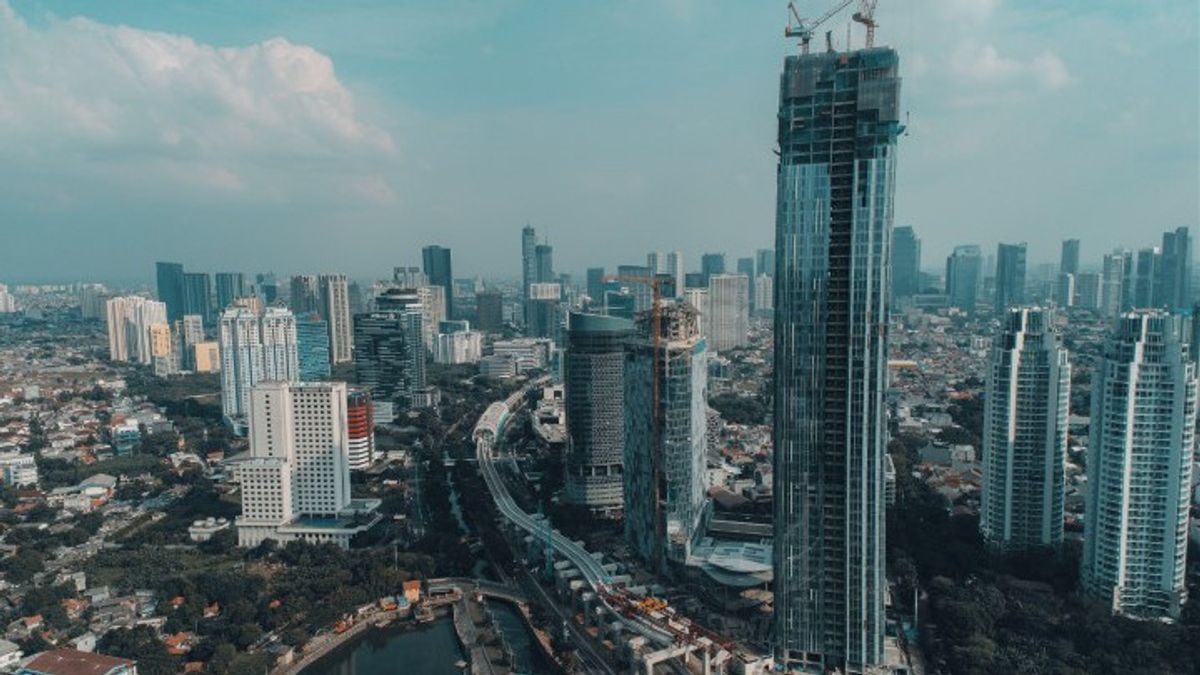JAKARTA - Member of Commission XI DPR RI Anis Byarwati believes that the re-enactment of Large-Scale Social Restrictions (PSBB) in the DKI Jakarta area, if properly implemented, has the potential to revive the economy after health recovery.
In a written statement, Anis Byarwati emphasized that the implementation of the PSBB in Jakarta would be effective and significant in reducing the spread of COVID-19 in the Capital City.
"Thus, the economy will be able to rebound, and God willing, it will have a positive impact on the welfare of the people," he said, said Anis, quoted by Antara, Friday, September 11,
Anis understands that the total PSBB that is enforced in Jakarta will definitely have a big impact on the national economy, especially from the consumption aspect where so far, DKI Jakarta has been the main driving force for Indonesia's economy.
However, he warned, the total re-enforcement of the PSBB in Jakarta must be done because the PSBB easing policy has a high risk of spreading the corona virus.
This, he continued, made this condition not good for the economy and health of Indonesia, so that PSBB was also considered feasible for both health and the economy in the future.
Previously, Center for Indonesian Policy Studies (CIPS) researcher Galuh Octania stated that the decision of the DKI Jakarta provincial government to reintroduce the PSBB starting September 14, 2020 needs to be followed by a series of efforts to ensure the smooth running of the supply chain, including the food supply chain, which is connected to the region. or the surrounding province.
Galuh said, the COVID-19 pandemic has shown a vulnerability to Indonesia's food security. The COVID-19 pandemic also increases barriers and risks to international food trade which in turn has an impact on food security.
"Referring to the FAO warning stating that countries need to keep trade routes and supply chains open while living in the midst of the control measures that are being implemented, ensuring the smooth running of the food supply chain must be carried out with due observance of health protocols," he said.
Galuh added that before the COVID-19 pandemic broke out in Indonesia, the prices of several food commodities had increased, including rice, garlic, onions and sugar.
This, he said, was due to several things, such as the delay in import recommendations from the government to processing import permits which took a long time.
He is of the opinion that it is feared that the price increase will continue if there is a disruption in the smooth running of the domestic food supply chain.
The implementation of the PSBB, continued Galuh, was predicted to affect transportation logistics.
"The implementation of the transitional PSBB has indeed opened up access to normal food distribution to a large extent. However, with the re-implementation of the PSBB strictly, it is feared that access to food distribution will be disrupted again, especially to and from the capital," he said.
The English, Chinese, Japanese, Arabic, and French versions are automatically generated by the AI. So there may still be inaccuracies in translating, please always see Indonesian as our main language. (system supported by DigitalSiber.id)













